myHIN Blog

April 10, 2013
The Problem with Black Women’s Health
Dominant. Independent. Bitter. Empowered. Manipulative. “I can do bad all by myself”. Superwomen. Stubborn. In denial. Ladies, what do these characteristics describe? These words or phrases are often used to label African American women. Whether we categorize these features under positive or negative connotations, there is unfortunately some truth behind every single one of them. African American women are hard- working, dedicated, educated professionals but we tend to put everyone and everything before ourselves. We want the best for our families and friends, which tends to become our overall mission of life, and forget about our own personal image and health. In many cases, African American women are single parents or just self- reliant individuals who metaphorically develop stern, powerful mindsets as their defense from real and perceived attacks. We go hard on ourselves since we automatically fall within the lower rank in American society; being classified as “double wammies” since we are female AND of the racial minority.
The number one health-related issue that black women deal with is cardiovascular disease. According to the National Stroke Association, one half of all African American women will die from stroke or heart disease. The death rates from heart disease and strokes for African American females are double those of White and Hispanic females. Our culture also tends to continuously struggle with health problems associated with obesity and high blood pressure. From overworking ourselves and fighting sleep, to insisting that we are in good health (bitterness), all of these cultural aspects play a role in our refusal of medical assistance when we need it most.
“Too many of us are just as crazy, walking (or running) around in denial, ignoring signs (headaches, exhaustion, dizziness, vision changes, weakness, numbness) that should send us to the doctor, not to the office or the car pool or off on that next ‘all important’ business trip. We are in denial about the real impact of our obesity, our smoking, drinking, and lack of exercise…all women should remember that whatever power we each possess is rooted first and foremost in our health. We work so hard to control so much and we’re always up for a challenge. Fine! Here’s a challenge! Commit to spending more time and attention controlling—and caring for—yourself.” (Caroline Clarke, Black Enterprise: Wealth for Life)
Share
Comments
comments powered by DisqusIn Partnership with: Poole College of Management, College of Humanities and Social Sciences, National Science Foundation, Penn State
Take Action, Get Tested: Find Your Local Testing Center Why Get Tested?
